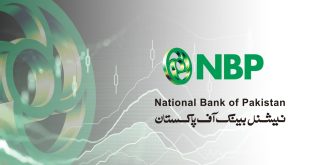AI-based systems will be rolled out to track enrolment, teacher quality, and climate outcomes, cutting through bureaucratic lags

ISLAMABAD June 26, 2025: The World Bank has rolled out two transformative projects worth $194 million in Balochistan, aiming to tackle learning poverty and shore up water security as part of a broader push for inclusive growth and climate resilience in one of Pakistan’s most underserved provinces.
Approved under the World Bank’s new Country Partnership Framework (CPF) for Pakistan (2025–35), the initiatives reflect a pivot from infrastructure-heavy lending to human capital development and climate adaptation. The CPF, finalized after nationwide consultations, identifies six strategic priorities: reducing child stunting and learning poverty, enhancing climate resilience, expanding clean energy, increasing fiscal space, and promoting inclusive private sector investment. Gender inclusion and digital monitoring cut across all these pillars.
The “Getting Results: Access and Delivery of Education Services in Balochistan” (GRADES-Balochistan) project will pump $100 million into early childhood and primary education. It aims to bring in 250,000 out-of-school children, scale up teacher training for 5,000 educators, and hand out 400 scholarships to young women aspiring to become teachers—an intervention that not only tackles gender gaps but also creates a pipeline of local role models.
On the water front, the “Balochistan Water Security and Productivity Improvement Project” (BWSPIP) will channel $94 million to shore up irrigation systems, cut down flood risks, and build up climate-resilient infrastructure. It will reach out to over 500,000 people, especially smallholder farmers facing water stress and erratic rainfall.
World Bank Country Director Najy Benhassine said the Bank is stepping in to support “people-cantered solutions” that hold up long-term development. “These projects plug in directly to the CPF goals—education, water security, and women’s empowerment—as core drivers of change,” he said.
AI-based systems will be rolled out to track enrolment, teacher quality, and climate outcomes, cutting through bureaucratic lags. By zeroing in on structural issues, the Bank aims to turn around Baluchistan’s trajectory and scale up proven models nationwide.
 Radio News Network Radio News Network
Radio News Network Radio News Network
